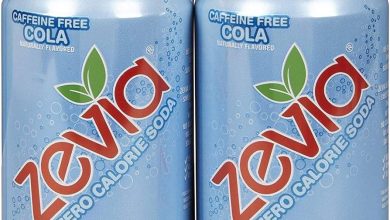Nutrient-Packed Simmered Beef Heart: A Protein-Rich, Iron-Filled Delight
Beef Heart (Simmered) – Nutritional Information & Ingredients
Description:
Beef heart is a nutrient-dense, lean meat that offers a rich source of protein and vital vitamins and minerals. A versatile ingredient, often used in various traditional and regional recipes, beef heart provides a deep, hearty flavor while being a great option for those looking to incorporate organ meats into their diets. When simmered, the beef heart retains its tender texture and takes on the flavors of the cooking ingredients, making it an ideal choice for soups, stews, and braised dishes.
Nutritional Information
(Per 100g serving of simmered beef heart)
| Nutrient | Amount | % Daily Value (based on a 2,000 kcal diet) |
|---|---|---|
| Energy | 165 kcal | 8% |
| Protein | 28.48 g | 57% |
| Fat | 4.73 g | 7% |
| Saturated Fats | 1.40 g | 7% |
| Carbohydrates | 0.15 g | 0% |
| Fiber | 0.0 g | 0% |
| Sugar | 0.0 g | 0% |
| Calcium | 5.0 mg | 1% |
| Iron | 6.38 mg | 36% |
| Magnesium | 21 mg | 5% |
| Phosphorus | 254 mg | 36% |
| Potassium | 219 mg | 6% |
| Sodium | 59 mg | 2% |
| Zinc | 2.87 mg | 26% |
| Copper | 0.559 mcg | 25% |
| Manganese | 0.033 mg | 1% |
| Selenium | 38.9 mcg | 56% |
| Vitamin C | 0.0 mg | 0% |
| Thiamin (B1) | 0.101 mg | 8% |
| Riboflavin (B2) | 1.21 mg | 93% |
| Niacin (B3) | 6.68 mg | 42% |
| Vitamin B6 | 0.245 mg | 19% |
| Folate (B9) | 5.0 mcg | 1% |
| Vitamin B12 | 10.8 mcg | 450% |
| Vitamin A | 0.0 mcg | 0% |
| Vitamin E | 0.29 mg | 2% |
| Vitamin D2 | 0.1 mcg | 1% |
Allergen Information:
- Allergen Status: This ingredient is naturally free of common allergens such as gluten, dairy, and nuts. However, individuals with specific sensitivities to meats or organ meats should consult with a healthcare provider.
- Cross-Contamination: As with any product, there is a risk of cross-contamination during processing or preparation in kitchens that handle allergens.
Dietary Preferences:
- Low Carb: Beef heart is an excellent option for those following a low-carbohydrate or ketogenic diet due to its minimal carbohydrate content.
- High Protein: This meat is particularly rich in protein, making it ideal for those looking to build muscle mass or maintain a high-protein diet.
- Gluten-Free: Naturally gluten-free, making it a suitable choice for individuals with celiac disease or non-celiac gluten sensitivity.
- Paleo-Friendly: As an organ meat, beef heart fits well within the Paleo diet, which encourages the consumption of natural, unprocessed foods.
- Iron-Rich: The high iron content is particularly beneficial for individuals with anemia or those who need to increase their iron intake.
Preparation Tips & Advice:
- Cooking Method: Simmering beef heart is an excellent way to tenderize it, making it more palatable while enhancing its rich, meaty flavor. You can simmer it in broth, wine, or a combination of both, along with herbs and vegetables, for a flavorful result.
- Tenderness: For optimal tenderness, be sure to simmer beef heart for at least 2-3 hours at a low heat. It can also be marinated beforehand with acidic ingredients (such as vinegar or lemon juice) to break down the fibers and improve texture.
- Flavor Pairings: Beef heart pairs well with earthy root vegetables like carrots, potatoes, and parsnips, as well as robust herbs like rosemary, thyme, and bay leaves. Garlic and onions also complement its rich flavor.
- Storing: Leftovers can be stored in an airtight container in the refrigerator for up to 3-4 days. For longer storage, consider freezing the beef heart for up to 3 months.
Conclusion:
Beef heart is a nutrient-dense option that is often overlooked in modern kitchens but offers an impressive range of health benefits. With its high protein content, essential vitamins like B12, and minerals such as iron and zinc, it is a valuable addition to any diet. Whether simmered in soups, stews, or braised dishes, beef heart provides a rich and savory flavor that can transform a simple meal into something extraordinary. For those seeking a low-carb, high-protein, and nutrient-packed food choice, beef heart should certainly be on the menu.







